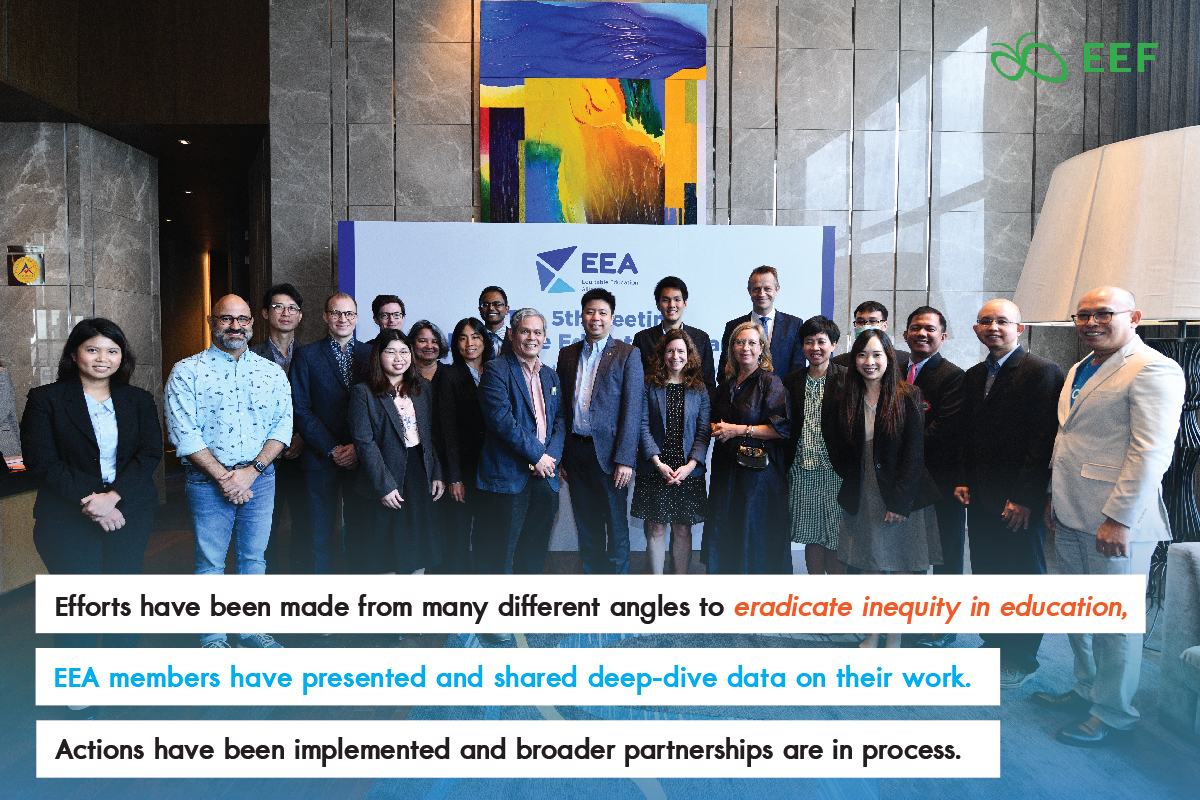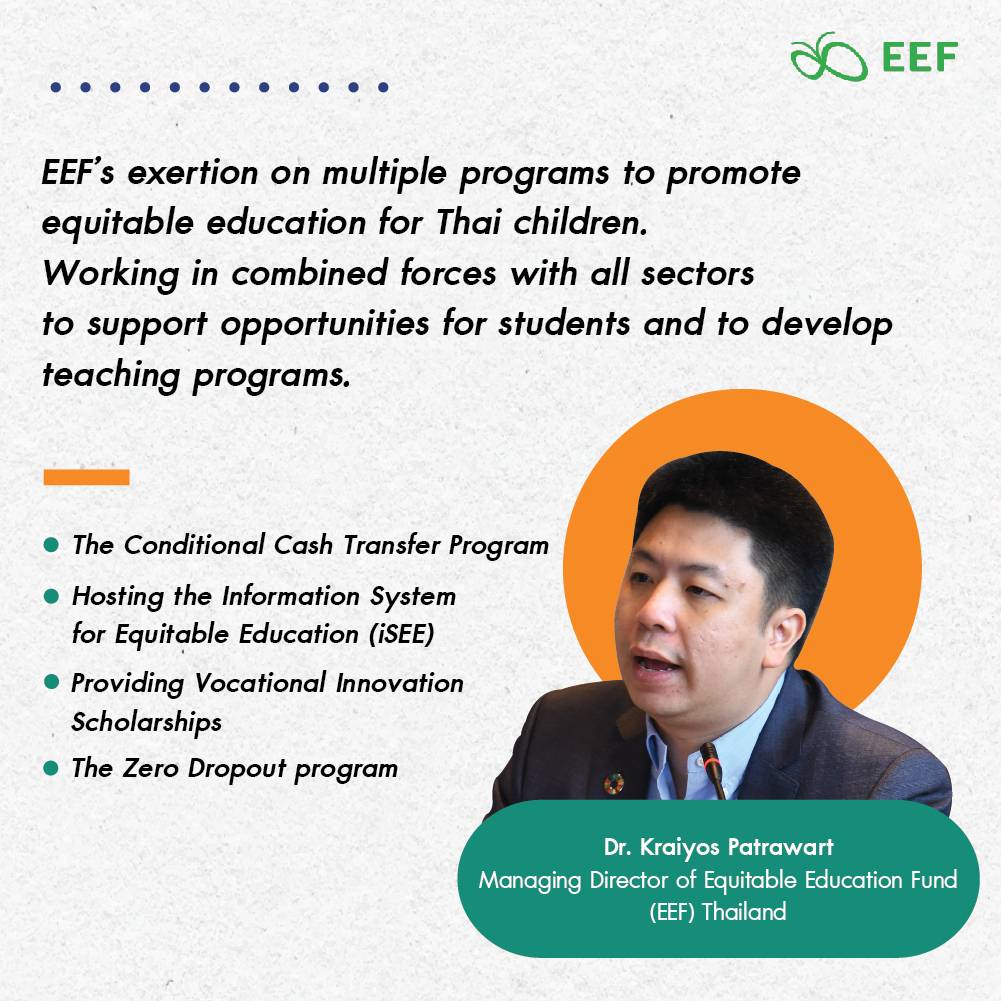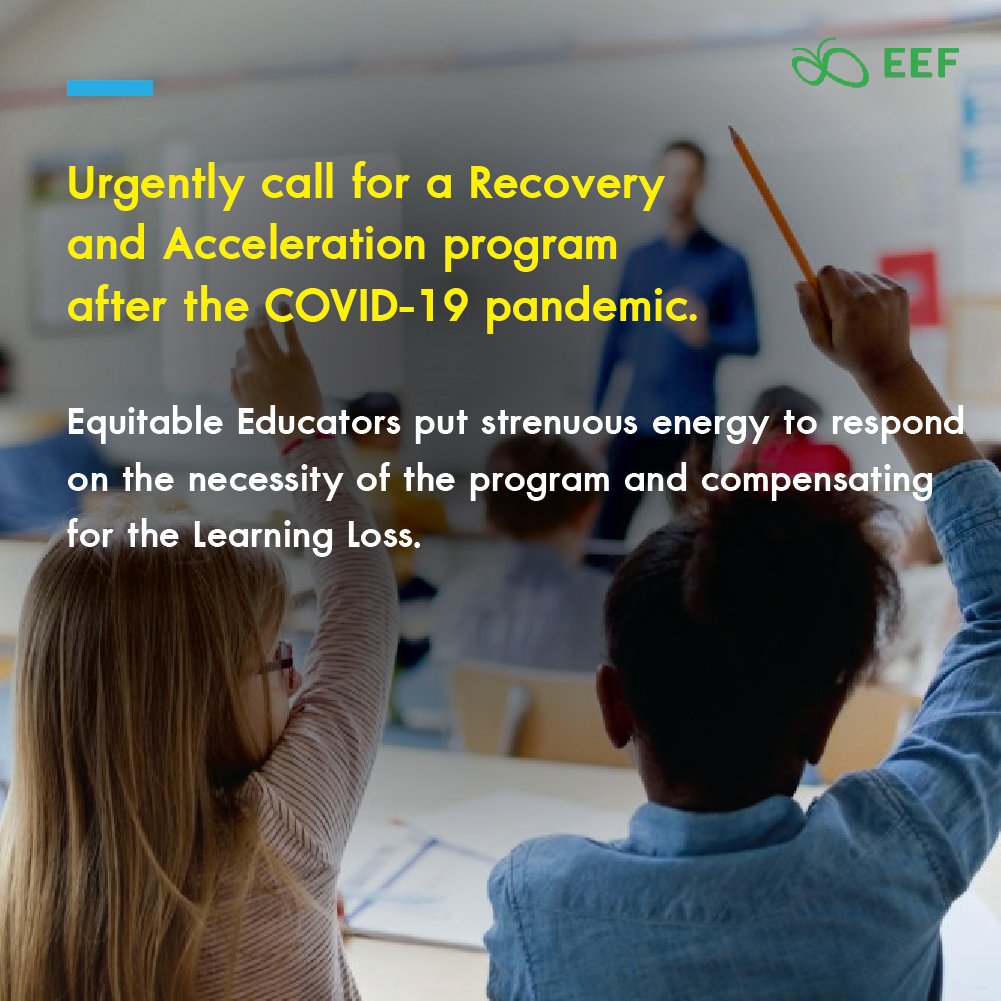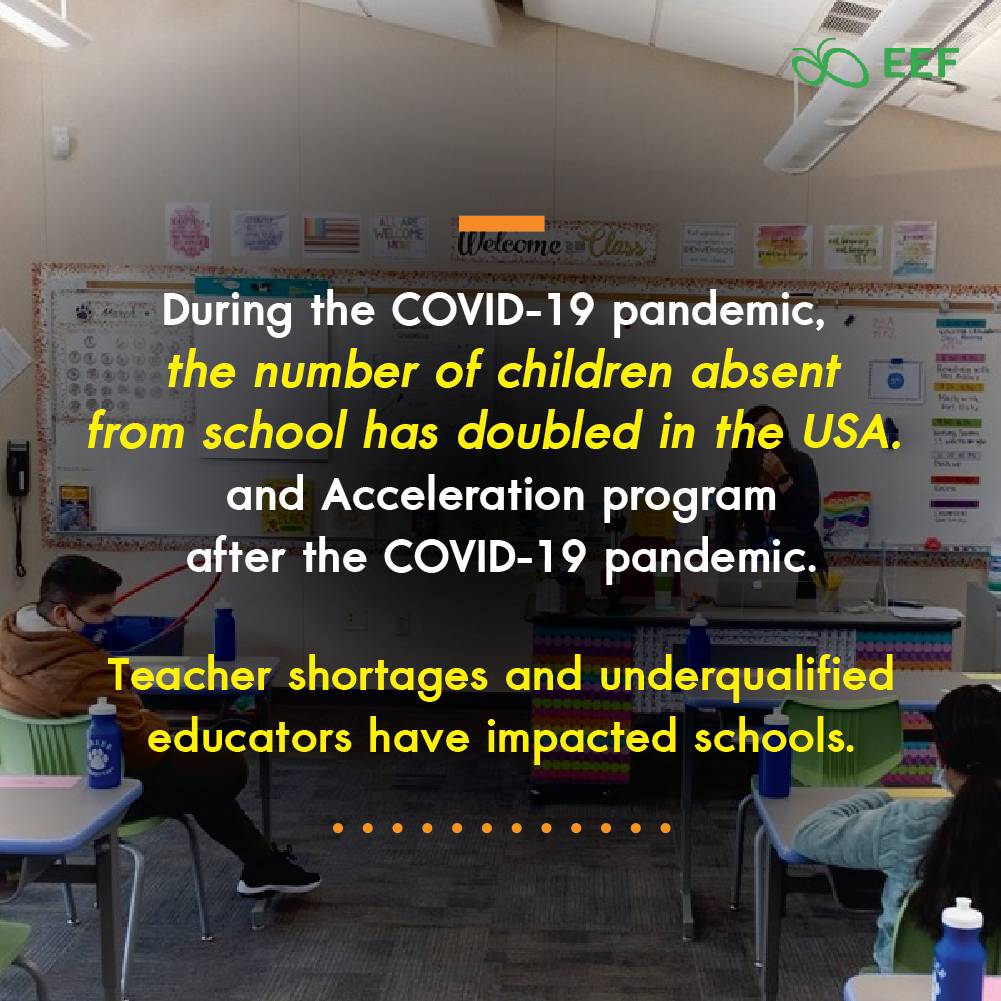
The amount of work has been done to materialize equitable education. The network shared knowledge and experiences in the 5th EEA meeting, including the Zero Dropout program, Adopting the science of learning in the classroom, the Equity dimension from Public Expenditure Review, and the Recovery and acceleration program. The efforts aim for the same ambition, equitable education.

The first case to be brought up is EEF’s exertion on multiple programs to promote equitable education for Thai children. Working in combined forces with all sectors, nationally and internationally, to support opportunities for students and to develop teaching programs. Launching the Conditional Cash Transfer Program (covering around 2 million students), Hosting the Information System for Equitable Education (iSEE) – the biggest database system of Thai students, and Providing Vocational Innovation Scholarships are part of the organization’s attempt. Moreover, some projects have been launched to enhance the equity goal. The Zero Dropout program in Ratchaburi province, Thailand was implemented, with the support from Sansiri company to improve the quality of school and improve career development. Also, the Area-based Education Project focusing on out-of-school children is applied in the local context.
The second example is the adoption of the science of learning in classroom practices to generate maximum benefit. The study has shown that the science of learning in practice gives advantages for all students: 1) sequencing learning so students can access their prior knowledge to reduce cognitive load, 2) explicitly paced instruction with modeling and examples, and 3) classrooms that focus on routines for learning so students can develop positive dispositions for learning. The adoption and implementation of science in learning also provide the opportunity for both practitioners and policymakers to embed evidence-based practices and policies.
An outlook from Public Expenditure Review clarifies a deeper dimension of public spending for equity. This perspective demonstrates deeper analysis to ensure that the funding goes to the area in greater need. In addition, the data elevated concern that the amount of money spent may not assure the quality of education.

Urgently call for a Recovery and Acceleration program after the COVID-19 pandemic. The pandemic has caused unprecedented interruption to schooling. A contextually suitable Learning Recovery program can help accelerate learning. Equitable Educators put strenuous energy to respond on the necessity of the program and compensating for the Learning Loss. The EEA Alliance has presented the program established in many regions such as Southeast Asia, Latin America, and America, to tackle the needs at great speed. Not only the establishment of the program but also providing guidance and knowledge resources for Government agencies at many levels.

Contrary to the efforts, findings showed that during the COVID-19 pandemic, the number of children absent from school has doubled in the USA. Teacher shortages and underqualified educators have impacted schools. These are just 2 pop-up issues on top of the pandemic. Therefore, Implementing Equitable Education has challenges that demand more equity-oriented actions. Working to broaden partnerships with common agenda is extremely highlighted.
Source: 5th Meeting of Equitatble Education Alliance (2022)

